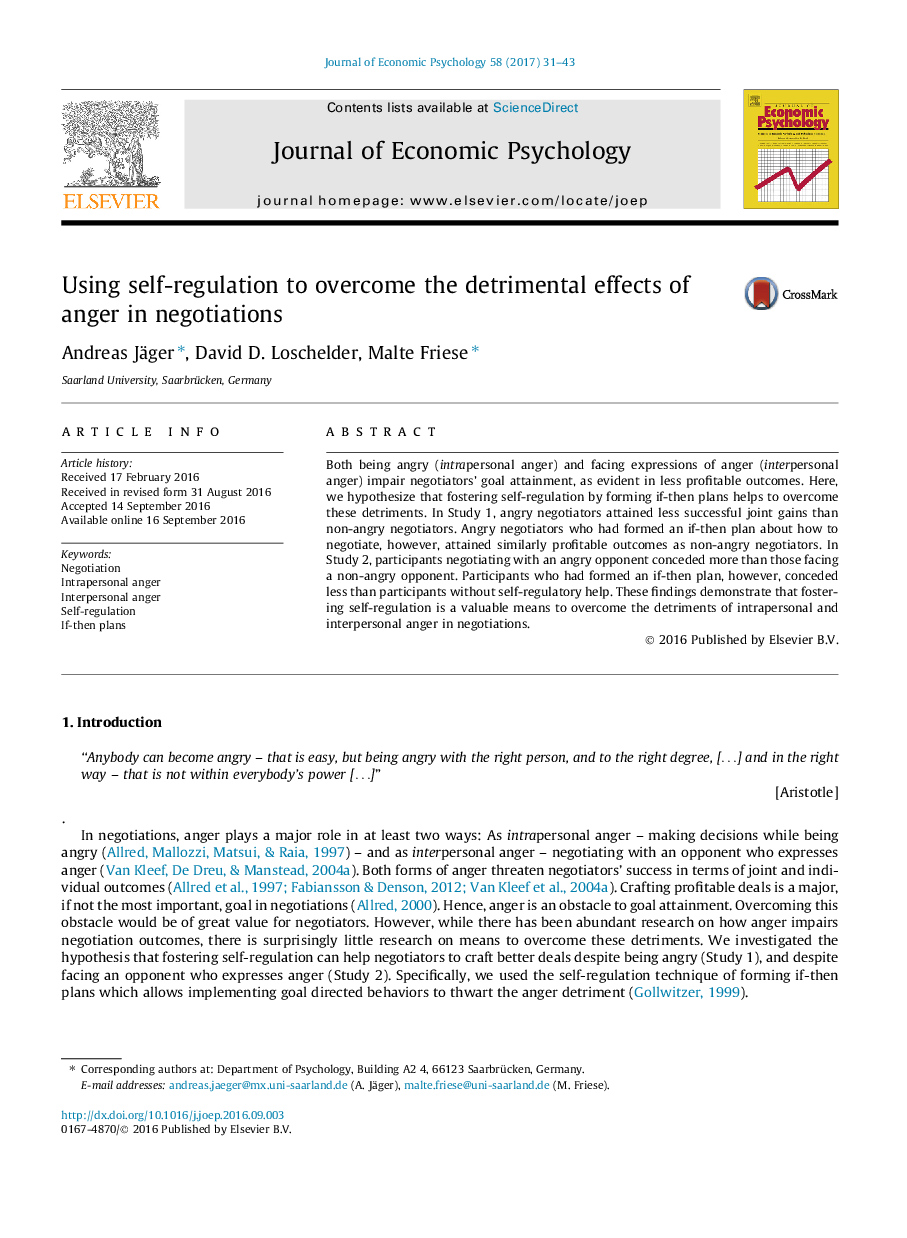| Article ID | Journal | Published Year | Pages | File Type |
|---|---|---|---|---|
| 5034804 | Journal of Economic Psychology | 2017 | 13 Pages |
â¢Intra- and interpersonal anger have detrimental consequences in negotiations.â¢Self-regulation helps to overcome these detriments.â¢Angry negotiators with if-then plans attain similarly high outcomes as non-angry negotiators.
Both being angry (intrapersonal anger) and facing expressions of anger (interpersonal anger) impair negotiators' goal attainment, as evident in less profitable outcomes. Here, we hypothesize that fostering self-regulation by forming if-then plans helps to overcome these detriments. In Study 1, angry negotiators attained less successful joint gains than non-angry negotiators. Angry negotiators who had formed an if-then plan about how to negotiate, however, attained similarly profitable outcomes as non-angry negotiators. In Study 2, participants negotiating with an angry opponent conceded more than those facing a non-angry opponent. Participants who had formed an if-then plan, however, conceded less than participants without self-regulatory help. These findings demonstrate that fostering self-regulation is a valuable means to overcome the detriments of intrapersonal and interpersonal anger in negotiations.
